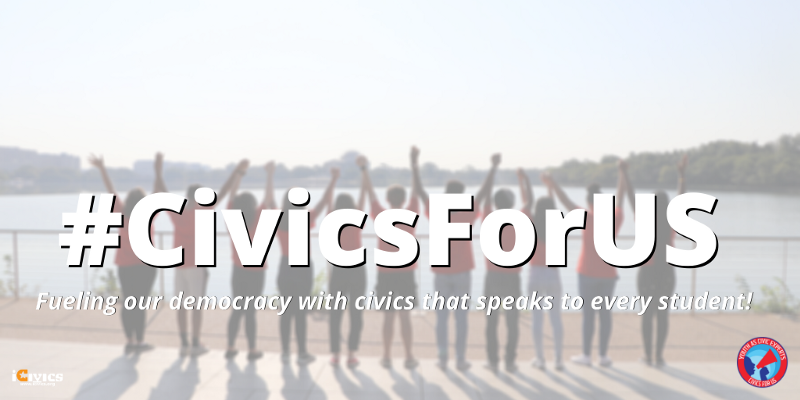
Shock, disappointment, and revelation were expressed by students upon reading several articles by the New York Times, Providence Journal, and Education Week about Rhode Island students’ 2018 lawsuit against their state for lack of civic education in schools. The resulting decision from the case revealed the great indifference the U.S. has for universal access to quality education despite youth’s passion for better learning opportunities and standards.
Youth as Civic Experts student, Sophie Li, was surprised “that the students were the ones that were forced to bring change because of the adults’ negligence to their education” and how “many of Rhode Island’s state officials continue to deny the importance of civic education and their students’ constitutional rights.” Along with Sophie, other students also realized that the lack of concern towards equitable civic education presents a major problem for the future of democracy. How can citizens vote and exercise their rights responsibly and knowledgeably without a clear understanding of what power they hold? Some students pointed out that these constraints, particularly in low-income communities, block citizen voices which would hinder fair and equal representation in our democratic processes.
Using CivxNow’s Policy Menu Brief, students evaluated potential solutions to address the lack of civic education standards nationwide. The brief reports that “only 9 states require a full year of civic education in high school. 10 states don’t require it at all” and “nearly 75% of Americans cannot name all three branches of government.” These shocking statistics are proof of how disregarded civic education is and its necessity to generate more knowledgeable citizens. The most favored policy recommendations amongst students were amplifying youth voice, culture and leadership, and equity.
The “2018 Brown Center Report on American Education: An Inventory of State Civics Requirements” published by Brookings provides a look into the implementation of some key proven practices for effective civic education across the 50 states. The 50-state inventory depicts a checklist for each state and their fulfillment of “classroom instruction (PP 1), discussion of current events (PP 2), service learning (PP 3), simulations of democratic processes and procedures (PP 6), and news media literacy (PP 7)” (Hanson et al.). Using the 50-state inventory, students assessed their state’s for successes and failures in civic education practices according to those PPs. The majority of them discovered their states fulfilled most of the categories, leaving service learning (PP 3) as the most common failure.
After comparing their state’s current civic education standards and curriculum to Rhode Island’s, there was concurrence amongst all the students that improvements can and still should be made. Most states seemed to have better standards than Rhode Island when it comes to implementing civic education within schools. Overall, it is clear there is a need for betterment in creating and executing civic education requirements across the nation.
It is imperative that there are active efforts being made to generate awareness on the significance of equitable civic education for all. The #CivicsForUS campaign has been exploring ways to actively engage and empower youth voices who strive to fight for a brighter future for equity in civic education. Youth as Civic Experts students have been investigating the root causes and potential sustainable solutions to address this inequity. Through research and vocalizing causes of inequity, students have brought attention to larger, interconnected issues that stem from and lead to inequitable civic education. Civic education and civic engagement affects not only individuals but entire societies proving the necessity of equitable civic education.
By: Vicky Chen
Vicky Chen is a senior at Baruch College and is extremely passionate about empowering youth and equitable education. She is currently the Youth Engagement Program Assistant, where she works alongside Youth as Civic Experts students to ensure their voices are shared and heard.


 See All
See All